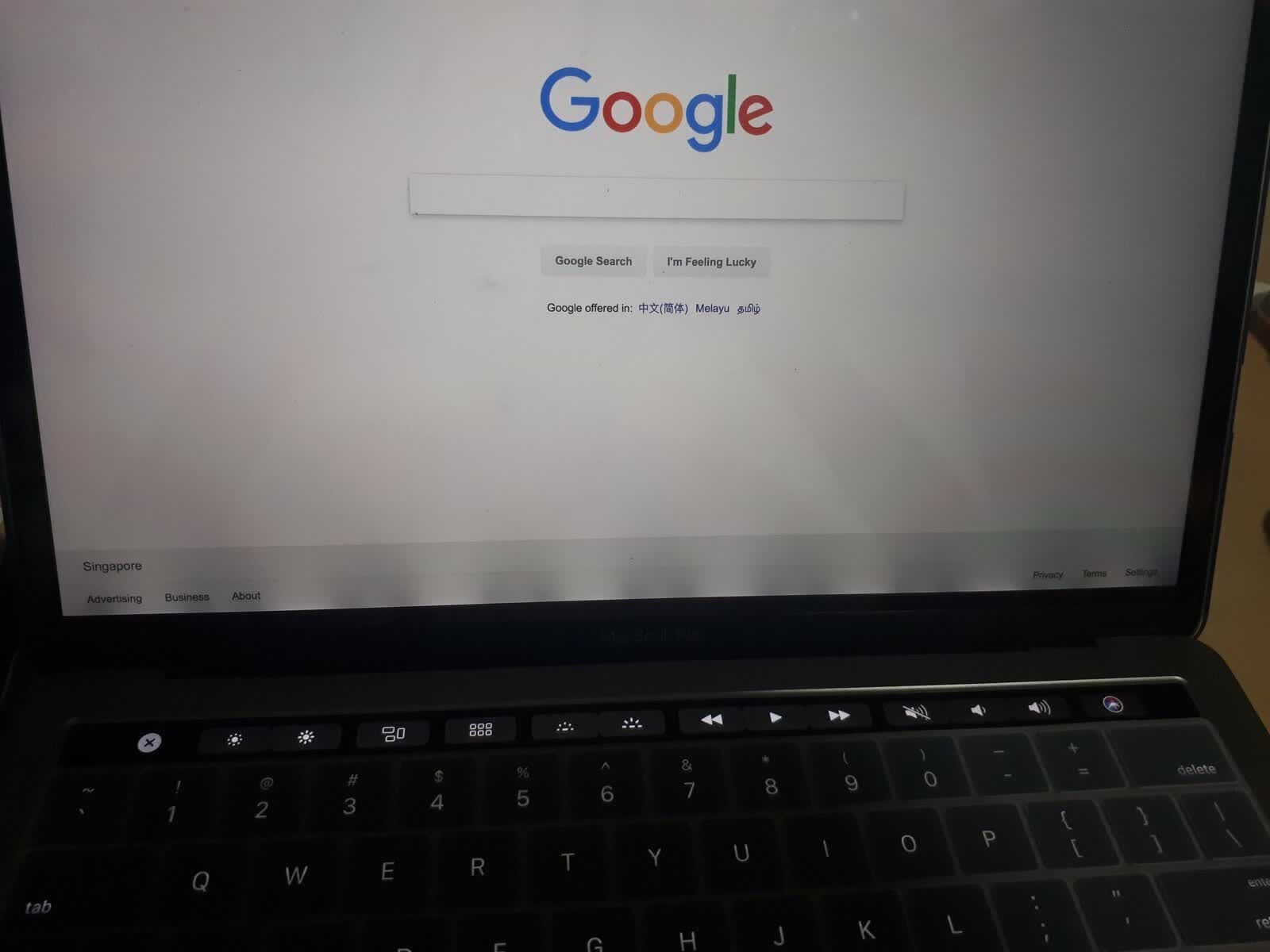Facepalm: The one thing you can say about Apple is that it sure keeps its legal team busy. When it's not fighting with Epic and others over its App Store tax or fending off antitrust regulators, it's busily engaged in defending itself against class-action lawsuits.
On Thursday, the District Court judge presiding over the "flexgate" class-action suit against Apple ruled that the Cupertino company sold 2016 and 2017 MacBook Pros with a screen defect. MacRumors notes, Judge Edward Davila's opinion was that "intensive pre-release testing" would have revealed the display to have a stress-related flaw in their flex cables.
Back in 2019, MacBook Pro users began complaining about a strange display issue that was causing a "stage-light" effect at the bottom of the screen. Other users report the display only working with the screen less than halfway lifted. It was determined that a flex cable for the backlighting was becoming stressed after repeated openings, causing it to fail.
Any @apple #macbookpro users getting this issue.. seen a few #flexgate on it.. 🤔 #tech #laptop #help pic.twitter.com/7kSlZbi66W
— Dylan Baldwin (@Dylan_Actor) June 12, 2020
At first, Apple denied the existence of a defect, and users with expired warranties had to cough up $600 for a screen repair. The issue was dubbed "Flexgate" in a petition to pressure Apple to address the problem. Cupertino finally acknowledged the problem in May 2019 when it initiated a free screen repair program for 2016 MacBook Pros as long as owners requested the repair within four years of purchase.
Apple still insisted that the defect was only present in "a very small percentage of 2016 13-inch MacBook Pro displays." However, users continued reporting having the issue in 13- and 15-inch MacBook Pros made in 2016 and 2017.
The representative plaintiff in the class action, Mahan Taleshpour, claims that while Apple was denying the issue, it deleted posts from its support forums related to the defect to cover it up. Having already determined that testing would have revealed the flaw, Judge Davila stated that if Taleshpour's accusation is true, it would further serve to prove Apple's complicity.
"If Apple deleted comments on its website from consumers complaining about display issues attributable to the alleged defect, that suggests that Apple had knowledge of the alleged defect, superior to that of plaintiffs or potential class members."
Apple's defense team said that the accusations of knowingly selling laptops with faulty screens were based on "false assumptions." It contends that Taleshpour had used his 2017 MacBook without issue for three years after purchase. Stress testing, typically conducted with a specific number of openings and closings, would not necessarily have revealed the problem as consumer usage can vary.
